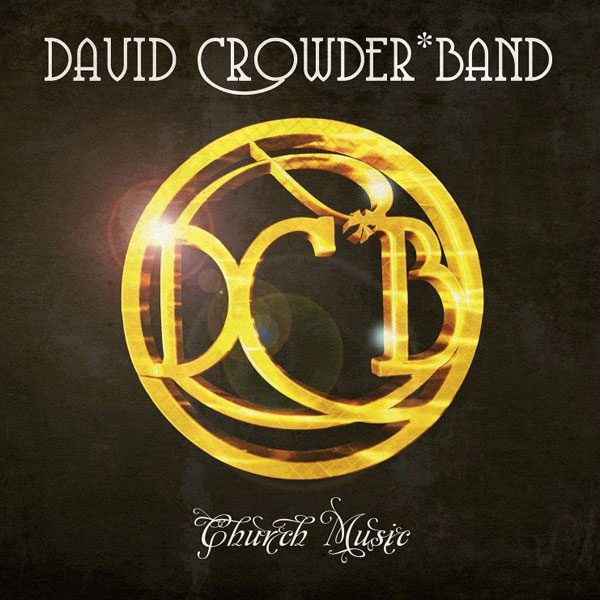 It's characterized by simple, easy to pick up melodies in mid vocal range, steeped in repetition and "one to one" human emotion. Yet, its power is unmistakable, as it has grabbed millions of youth typically numbed over by church conventions to throw their arms up in sweet surrender to God.
It's characterized by simple, easy to pick up melodies in mid vocal range, steeped in repetition and "one to one" human emotion. Yet, its power is unmistakable, as it has grabbed millions of youth typically numbed over by church conventions to throw their arms up in sweet surrender to God.In fact, not long after fearless pioneers like Keith Green set out to convert the free-loving hippies of the '70s with his Contemporary Christian tunes patterned after the Bob Dylans of the day, this movement soon picked up speed.
Not without the noxious critics and unsettling controversy of the past two decades, Contemporary Worship music has swept the nations.
Surely, it is a movement that has stirred thousands of youth to gather, voicing songs of praise from their lips. It has made use of catch phrases like "passion," "adoring you," and "live out loud" to communicate a faith predicated on a love relationship. And, it is a movement that calls for higher inquiry into who am I in relation to who made me.
The David Crowder*Band is one of the foremost driving forces behind this musical movement.

Crowder, who played piano from an early age and picked up guitar later, began to write songs that borrowed influences from pop and rock, which he could use as teasers as part of the worship segment during the church he started called University Baptist Church.
"Church music is most effective when it throws its arm around the language of the common people or the people that it's trying to articulate faith on behalf of," said Crowder, whose band has garnered 6 GMA Dove Awards and 17 nominations in the 15 years they have been established.
Crowder, who epitomizes the Contemporary Worship songwriter, heavily uses imagery of life and death, intimacy, power and freedom - language that any human without extensive theological knowledge can identify with.
The enigmatic nature of his lyrics - similar to current pop/rock music - is what the kids that follow him seem to like.
Statistics show that up to 50% of evangelical college freshman will forsake their Christian beliefs by their senior year of college.
It was this grim statistic that gave Crowder the push he needed.
"It's known that youth make their decision about what they'll believe during their college years," said Pastor Miles Adams, chaplain at College of Staten Island. "So, if we grab them while they're here, then we know we've made a significant impact on them for rest of their lives."
Songs from David Crowder*Band are the kinds used by Adams and many other college ministers to communicate faith in the most relevant of ways to the students on their campuses.
What's more, from World Harvest Church in Ohio to Lakewood Church in Texas, Contemporary Worship music has been a catalyst for transformational change and exponential growth in these multi-thousand person congregations.
"There has been an explosion of music that has re-captured the popular voice of the people. That's been a large part of the growth sector in the American church," said Crowder. "The churches that seem to be blowing up and doing well are presenting music that is common to the people in front of them."
The world was introduced to Austrialian church Hillsong, one of the largest Christian churches in the world, in 1992 in this very manner.
Since then, songs that originated from that ministry - "Power of Your Love" by Geoff Bullock and "Shout to the Lord" by Darlene Zschech - have become widely popular and are now sung in churches worldwide.
The Church Dissents
But, Contemporary Worship music does not exist without its dissenters.
 Passionate criticisms from people like Gary Parrett, Associate Professor of Educational Ministries and Worship at Gordon-Conwell Theological Seminary, have been voiced over the past frew years. Parrett's main objection is that the volume of this music drowns out congregational participation, and therefore makes it a performance.
Passionate criticisms from people like Gary Parrett, Associate Professor of Educational Ministries and Worship at Gordon-Conwell Theological Seminary, have been voiced over the past frew years. Parrett's main objection is that the volume of this music drowns out congregational participation, and therefore makes it a performance. Bacchiocchi claims the physical response such as hands raised and heads bobbing induced by drums in a worship context is evidence that rock takes peoples' minds away from contemplating on the lyrics and God.
In an essay published on Rapzilla.com in August of this year entitled, "Can Beats Be Evil?" an author dubbed Wut Metaphysical debunked many of the theories outlined by the aforementioned modern thinkers.
"To argue that rhythm is evil in any sense is actually counter to the commands and actions in the scriptures. Rhythms are used all over the Bible for positive and correct practices. It is used for prophecy (1 Samuel 10:5,6), praise of God (Psalm 150:4), worship (Psalm 68:25), and joyful celebration (Isaiah 24:8). So, the direct source of this ideology against rhythm is not found in the Bible; it must be from another source," said the author.
Shhh....Bad TriTone...Bad!
Crowder chose this as a point to explore, however subliminally, in his latest album - Church Music.
"We sort of hid the history of church music (a decent timeline of the progression of music in the church) in the album. We chose the Top 17 moments of the origins of church music, which were in actuality all very contentious moments. They either propelled a movement forward or regression backward," said Crowder.
By Track 5 on Church Music, you've reached the Middle Ages and the hymn chosen sits on a tri-tone, a musical interval that spans three whole tones, which the untrained ear can identify as the same three tones in the The Simpsons theme song.
"It was known as the Devil's Tone because it was obviously a strange interval for people," said Crowder. "It was banned by the Pope because the church thought it was too lascivious for usage in the church."
As in the Medieval ban of the tri-tone, traditionalists today have also placed bans on Christian Rock, Hip-hop and other modern musical movements.
Notwithstanding, a rh ythm or beat is simply the variation of length between sounds.
ythm or beat is simply the variation of length between sounds.
Wut Metaphysical reminds us that "just two simple sounds can create a rhythm; a drum is not necessary. It is an almost completely essential utility in music and appears everywhere in nature (including the human heart). So can two sounds in sequence be evil?"
Proving this point loud and strong, Church Music, raked in over 35,000 units in its first week in September, garnering the top spot on the Christian Retail Chart and the No. 11 position on the Billboard Top 200. It also maintained a stay at No. 1 on the iTunes Christian and Gospel Album chart as well as peaked at No. 3 on the iTunes Overall Album chart.
"Crowder continues to carve out a unique space on the musical landscape with the band's forward-thinking approach to our time-honored faith," said Louie Giglio, director and founder of DC*B's label, sixstepsrecords.
David Crowder*Band will be playing a tour stop in New York City as part of Rock The Sound Concerts at Terminal 5 on November 13. For more information, visit www.rockthesound.com

